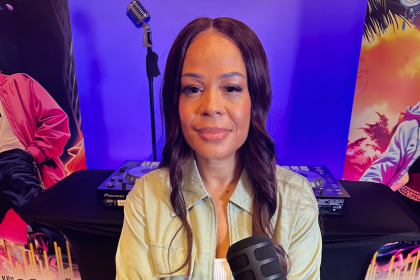The transformation of gambling from underground activity to mainstream entertainment has created new challenges for communities across America, particularly in predominantly Black neighborhoods. This evolution, marked by the proliferation of online betting platforms, casino expansions, and aggressive marketing campaigns, has raised significant concerns among health professionals and community leaders about its impact on vulnerable populations.
Marketing strategies raise community concerns
The gambling industry’s targeted advertising in urban areas has drawn criticism from community advocates who note the disproportionate presence of betting establishments and advertisements in Black neighborhoods. These marketing efforts often emphasize potential winnings while downplaying risks, creating a potentially dangerous narrative around gambling as a path to financial success.
The hidden costs of entertainment
Recent studies reveal disturbing trends in gambling addiction rates among Black Americans. Research indicates higher vulnerability to problem gambling in these communities, often exacerbated by economic pressures and targeted marketing. The financial impact extends beyond individual losses, affecting family stability, mental health, and community well-being.
Breaking down responsible gambling practices
Understanding responsible gambling requires recognizing it as more than just casual entertainment. Experts emphasize the importance of viewing gambling through a comprehensive lens that includes financial planning, mental health awareness, and community support. This approach helps individuals maintain control over their gambling habits while enjoying entertainment responsibly.
Creating protective boundaries
Mental health professionals recommend establishing clear boundaries when engaging in gambling activities. This includes setting strict financial limits, tracking time spent gambling, and maintaining transparency with family members about gambling activities. These practices help prevent the development of problematic behaviors before they begin.
The role of community support
Local organizations play a crucial role in addressing gambling-related issues within Black communities. Churches, community centers, and cultural organizations often serve as first points of contact for individuals seeking help with gambling problems. These institutions provide valuable support networks and can direct people to professional resources when needed.
Professional help and intervention
A growing network of specialized counselors and treatment programs focuses on addressing gambling addiction within Black communities. These programs often take a culturally sensitive approach, recognizing the unique social and economic factors that influence gambling behavior in these communities.
Technology’s double-edged sword
While technology has made gambling more accessible than ever, it also provides tools for maintaining control. Modern betting platforms offer features like self-exclusion programs, spending limits, and activity tracking. However, experts stress the importance of understanding and utilizing these tools before problems develop.
Building financial literacy
Financial education emerges as a crucial component of gambling prevention. Community programs teaching budgeting, investment, and wealth-building strategies help provide alternatives to gambling as a perceived path to financial security. These initiatives often incorporate cultural perspectives and address specific challenges faced by Black communities.
The path forward
Community leaders emphasize the importance of open dialogue about gambling within Black communities. This includes discussing both the entertainment value and potential risks associated with gambling activities. Such conversations help reduce stigma around seeking help and promote healthier attitudes toward gambling.
Resources for support
A comprehensive network of support services exists for individuals struggling with gambling issues. The National Problem Gambling Helpline provides 24/7 assistance, while state-specific programs offer localized support. Many of these services now include culturally competent counselors who understand the unique challenges faced by Black communities.
Prevention through education
Educational initiatives focusing on youth prove particularly effective in preventing gambling problems before they start. These programs often incorporate real-life examples and statistics relevant to Black communities, making the information more relatable and impactful for their target audience.
The conversation around responsible gambling in Black communities continues to evolve as new challenges emerge. Success in addressing these issues requires ongoing collaboration between community organizations, healthcare providers, and gambling industry stakeholders. By maintaining focus on education, prevention, and support, communities can work together to promote responsible gambling practices while protecting vulnerable individuals from addiction’s devastating effect,
















